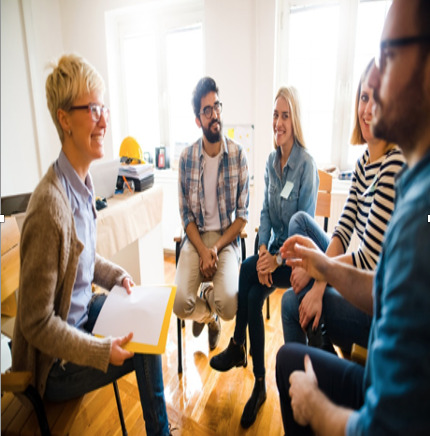Strong Social Skills: The purpose of formal education is to develop a complete and functioning member of society. The school teaches students the knowledge needed to perform productive tasks for business and employment and learn a living wage. However, the knowledge acquired by students at school will be useless if they do not develop social skills; human beings are social creatures. Firstly, gaining knowledge will be virtually impossible without soft skills.
Good social skills are essential to survive in life as they allow us to know how to interact with others and act in different scenarios. While most people acquire soft skills along the line without being actively taught, it is always better to reinforce soft skills through intentional learning and instruction. This blog post will expose us to what soft skills are and how they can be useful to increase productivity in the classroom.
What are strong social skills?
Social skills, also known as interpersonal skills, are the skills we use in our daily interactions with other people in different environments. It’s how we communicate verbally and non-verbally. Social skills are how we define and shape acceptable social behavior, communicating our thoughts and feelings to others. It’s everything from the posture we take while communicating, to our tone of voice and choice of words, and even how we look.
While acceptable social behavior always evolves, social skills are more like a constant that helps us shape that evolution and adapt to change. They involve the learned ability to do something. Just like any other skill, social skills can be taught, learned and improved. Whether it’s learning how to converse or how to communicate effectively with others, we can always benefit from improving our social skills.
Types of social skills useful in the classroom
There are a variety of social skills that can be useful in the classroom setting. Here are some of them:
- sharing and collaboration
Sharing is a skill that students must learn to develop to facilitate classroom learning. Children who do not know how to share and collaborate may find it increasingly difficult to formulate relationships with their peers, leading to isolation, loneliness and, at times, conflict. Instructors can reinforce this skill by having students share learning resources during instruction.
Empathy for others is the ability to understand and share the feelings of others. Empathy and caring for others will enable students to embrace diversity and teach them to practice inclusion. When you teach caring as a skill, empathy comes more naturally. Caring for people, regardless of who they are, will show students that they also practice the same thing with each other.
- Active listening and communication
Listening to others and not interrupting will help students learn and process information better. Listening is not only a way of attracting students to others, but also of strengthening their ability to understand language. This will help them learn how to handle social interactions, understand concepts and information, and communicate when asked. Students learn to listen when they are heard. You cannot continually interrupt your students; you’re saying it’s okay to talk about people and not listen.
Following instructions involves teaching students to pay attention to detail, respect authority, and perform simple tasks to perfection. However, before a child can learn to follow instructions, he or she needs to have the behavior reinforced, receiving simple instructions and not being rewarded for not following instructions except in exceptional circumstances.
For reasons that may include differences in social status, economic status, academic skills, and home training, some students may feel intimidated by their peers. This can sometimes lead to conflicts. Proper conflict resolution and management must be taught to students to enable them to effectively manage their peer relationships.
Respect for other people’s boundaries is necessary for the classroom. This will prevent peers from interrupting each other’s learning processes. Students should also have the ability to set boundaries for their peers so they can learn from an early age how to get out of uncomfortable situations.
How soft skills improve classroom productivity
Promoting good social skills in the classroom is beneficial for learning. However, for instructional development of soft skills to be effective, it must be conducted by a well-trained educator. Developing as an educator involves hands-on experience as well as formal education. It can be as simple as getting a Master’s education connected to help develop your skills and deliver better value to your students. The following are some of the ways soft skills improve classroom productivity:
Students want to maintain cordial relationships with their peers. A lack of social skills can lead to unresolved conflicts in the classroom that can make some students uncomfortable and negatively impact their learning. On the other hand, good social skills lead to peer acceptance, which can improve students’ mood and increase productivity.
- Promotes academic success
Good social skills help improve individual learning in the classroom. Students who can set and respect boundaries, ask for help, and communicate are more likely to meet their academic demands than students who cannot. This will undoubtedly promote academic success and create a positive classroom environment.
Good social skills promote safety at school as students learn proper relationship management and conflict resolution and actively unlearn aggressive social behaviors. Aggressive behaviors and persistent conflicts can make the school environment unsafe for some students, negatively impacting their classroom productivity.
- Build resilience in students
Resilience is necessary for students to actively learn and constantly improve by taking on new learning challenges. Good social skills will reinforce sometimes uncomfortable behaviors in students to help them become better and more effective learners.
Lack of social skills among students can have lasting negative effects if no conscious attempt is made to learn interpersonal skills and unlearn negative social behaviors they have acquired. Instructors and educators have a big role to play in helping students develop and nurture these skills. Therefore, educators must not only learn soft skills, but must also learn to teach soft skills.
